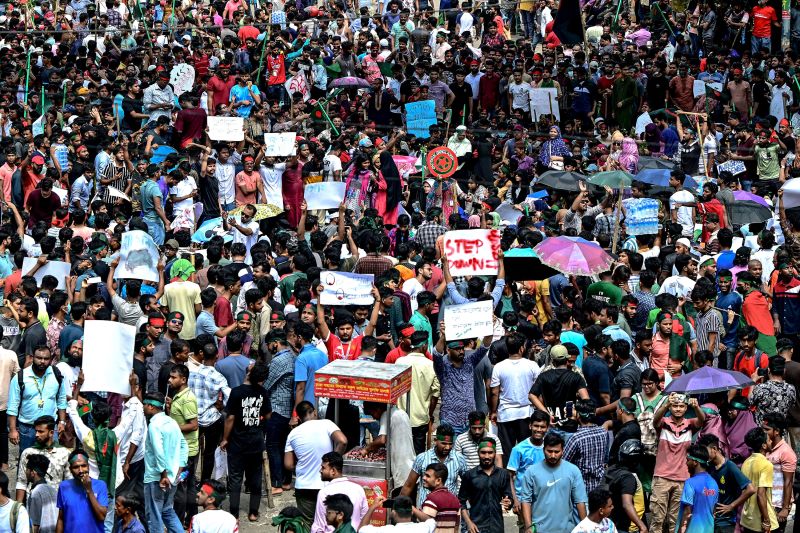In an undeniably grim turn of events that has stirred international concern, reports relay that at least 27 individuals were killed in Bangladesh amid violent clashes between protesters, police, and pro-government activists. This article aims to shed light on the unfolding events and provide a factual account of the tragedy.
The protesters comprised mainly of student activists, who took to the streets en masse, demanding democracy, freedom of speech, and the resignation of incumbent government officials. The demands for change stem from deep-seated frustrations about alleged government corruption and widespread human rights abuses.
According to local sources, the demonstrations turned violent when police and pro-government activists faced off with the protesters. The clashes took place across several districts, escalating to a specific level of intensity in the country’s populous capital, Dhaka.
Reports indicate that police used tear gas, rubber bullets, and live rounds in an attempt to disperse the crowds. The retaliation of the protesters stoked the flames of the confrontation, with some resorting to throwing bricks and homemade bombs at the security personnel.
The pro-government activists, largely loyalists of the ruling party, were perceived as another force against the protesters. There are allegations that they attacked the protesters under the guise of restoring order. However, these claims remain unverified and are part of the larger controversy surrounding the event.
The violence claimed the lives of at least 27 individuals, according to the most conservative estimates. Even worse, scores of people were left injured, exacerbating the crisis in the country’s healthcare system already strained due to the ongoing COVID-19 pandemic.
The situation became yet more troubling with allegations that security forces were detaining protesters en masse, leading to fears of arbitrary arrests and extrajudicial killings. These allegations, coupled with the government’s stringent censorship and limitations on press freedoms, have led to calls for transparency and accountability from international human rights groups.
The international community has expressed deep concern over the situation in Bangladesh. Numerous countries and international organizations have called for a peaceful resolution to the unrest, urging respect for the rights of protesters and adherence to the rules of engagement by law enforcement.
The United Nation’s human rights body expressed deep concern over the excessive use of force by law enforcement, while the European Union called for a full and swift investigation into the violence. Similarly, Amnesty International emphasized that protesters have the right to express their views peacefully, and that the response of law enforcement should be proportionate and adhere to international standards.
However, as the current climate continues to deteriorate, it is clear that Bangladesh is grappling with a multifaceted crisis. The escalation of violence, alleged state suppression, and the urgent need for political stability paint a somber picture of a nation on the precipice of an extensive humanitarian and political crisis.
Despite this, it remains an incontestable fact that the Bangladeshi people’s resolve for democratic reform and government accountability is undeterred. Amid the tumult, the underlying narrative remains the call for justice, government transparency, and respect for human rights.




